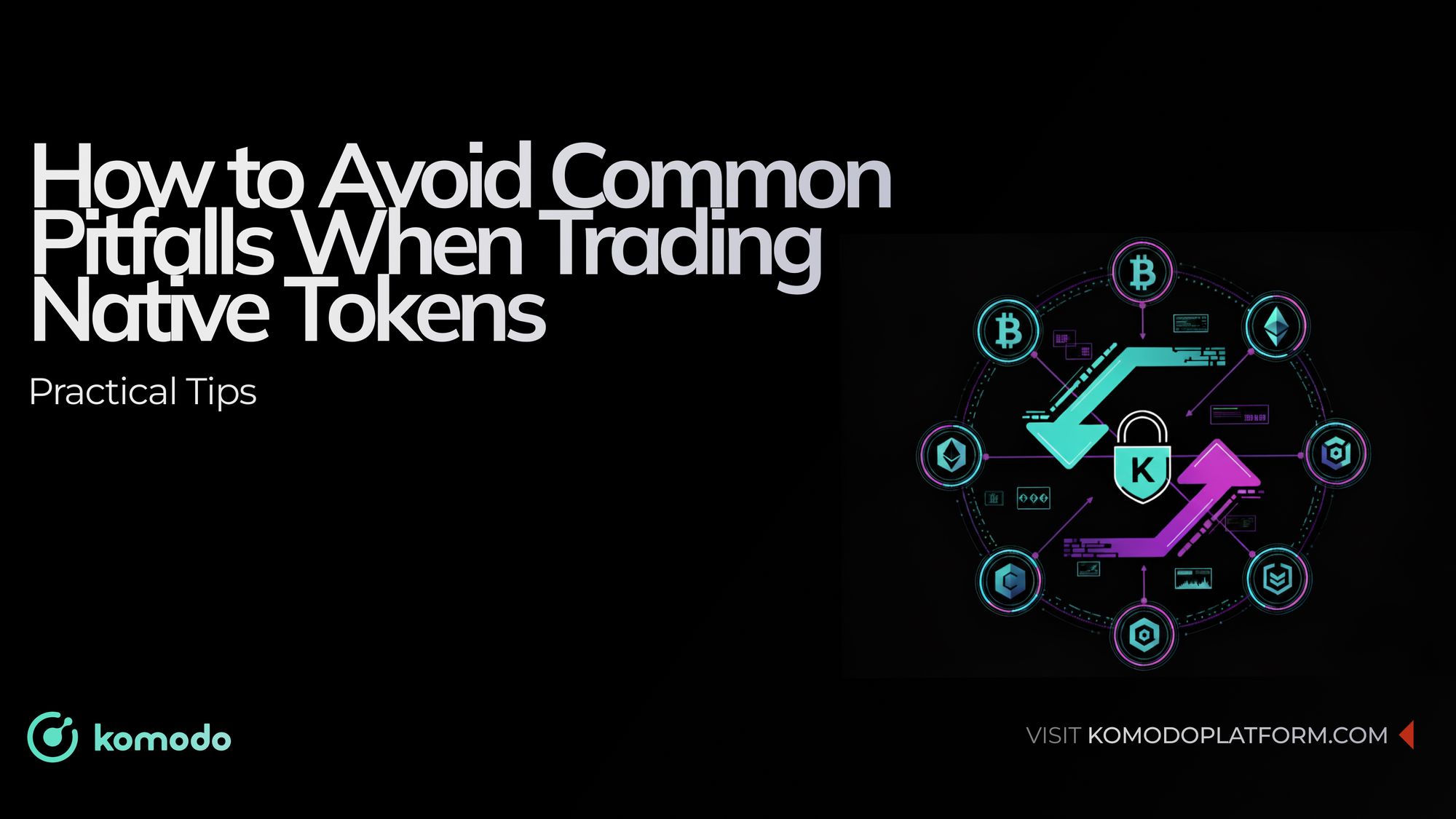Trading native tokens across blockchains can open up exciting opportunities for DeFi users, but it’s not without its challenges. Many traders make avoidable mistakes that can lead to costly errors. Whether you're new to cross-chain trading or have some experience, it’s important to understand the risks and how to navigate them.
This article will guide you through the common pitfalls when trading native tokens and offer practical tips to make your transactions safer and more efficient.
Pitfalls When Trading Native Tokens Across Chains
Trading native tokens across different blockchains offers numerous benefits but also presents certain risks if not done properly. Understanding these potential pitfalls can help traders navigate the complexities of cross-chain transactions and guarantee a secure, efficient experience. In this section, we’ll look at some of the most common mistakes and how to avoid them.
Using Wrapped Tokens Instead of Native Tokens
One of the most common mistakes in cross-chain tokens trading is the use of wrapped tokens. Wrapped tokens are versions of native tokens that exist on other blockchains, typically as ERC-20 tokens on the Ethereum network. For example, Wrapped Bitcoin (WBTC) allows Bitcoin holders to use their BTC on the Ethereum network.
However, wrapped tokens come with hidden risks, such as reliance on custodians and third-party validators. These intermediaries can introduce vulnerabilities, including the risk of hacks, mismanagement, or centralization. Native tokens, on the other hand, are directly traded across chains, removing the need for wrapped versions and the associated risks. You can reach out to our native tokens vs wrapped tokens guide for more detailed information.
By trading native tokens, users can eliminate the exposure to these risks and enjoy a more secure, trustless trading experience.
Insufficient Knowledge of Cross-Chain Technology
When trading native tokens crypto across different blockchains, it’s important to understand the cross-chain technology behind the transactions. Many users fail to recognize the importance of technologies like atomic swaps or Hash Time Lock Contracts (HTLCs) that facilitate direct, trustless trading of native tokens between blockchains.
Without a solid understanding of how cross-chain tokens trading works, users might inadvertently send tokens to incompatible addresses or fail to account for network differences. This can result in lost assets or failed transactions.
Ignoring Platform Security Features
Another common pitfall is ignoring the security features of the platform being used for trading native tokens. Many decentralized exchanges (DEXs) and wallets introduce hidden risks through centralized components or inadequate security measures.
To avoid these issues, it’s vital to choose a platform that prioritizes security. Komodo Wallet, for instance, is a fully self-custodial platform that guarantees all trades are executed directly on-chain, without relying on third-party custodians or validators. This eliminates the risk of a single point of failure and allows users to trade native tokens with full control over their assets.
Always verify the security protocols of any platform you use, especially when dealing with native tokens.
How to Safely Trade Native Tokens Across Chains
Trading native tokens securely across chains requires careful attention to platform selection, knowledge of cross-chain technologies, and following security best practices. Here are some tips to guarantee safe tokens trading:
- Choose a wallet that offers full control over your private keys, such as Komodo Wallet. This guarantees that you are the only one who can access your funds.
- Before initiating a trade, make sure the platform supports the specific native tokens you wish to trade. Not all platforms support every blockchain.
- Regularly update your wallet and platform software to protect against vulnerabilities and ensure compatibility with the latest cross-chain technologies.
By following these steps, you can trade native tokens with confidence, minimizing risk and maximizing your trading potential.
Trade Native Tokens Safely and Securely with Komodo Wallet
Trading native tokens across chains offers exciting opportunities, but it also comes with potential pitfalls. By avoiding wrapped tokens, understanding cross-chain technology, and prioritizing platform security, you can make sure that your trading experience is safe and efficient. Komodo Wallet offers the perfect solution for secure, decentralized trading of native tokens across multiple blockchains. Start trading today to experience the benefits of a truly decentralized exchange.
FAQs
Can I trade native tokens across chains without using a third-party platform?
No, cross-chain trading requires a platform or technology to support secure transactions between different blockchains. Platforms like Komodo Wallet allow direct, trustless trading of native tokens across multiple chains.
How do I know if my native tokens are compatible for cross-chain trading?
Native tokens need to be supported by the platform you're using for cross-chain trading. Always check the list of supported blockchains and tokens on the platform to verify compatibility.
What happens if I send native tokens to the wrong blockchain?
Sending native tokens to the wrong blockchain can result in lost assets. To avoid this, always double-check the blockchain compatibility before initiating any cross-chain transactions.
